David Cortez
-

Collins named Destination Biochemistry Stanley Cohen Postdoctoral Scholar
Hannah Collins was named the 2025 Destination Biochemistry Stanley Cohen Postdoctoral Scholar in recognition of her exceptional training, innovative research on microglial signaling, and strong potential as a future scientific leader. Joining Bruce Carter’s lab, she brings significant expertise and new perspectives to studies of the Jedi receptor in microglial function. Read MoreDec. 16, 2025
-

Cortez, Bhowmick win Chancellor’s Award for Research at 2025 Fall Faculty Assembly
David Cortez and Rahul Bhowmick won the Chancellor’s Award for Research for their work, “RAD51 Bypasses the CMG Helicase to Promote Replication Fork Reversal,” which was published in the journal Science. Read MoreSep. 5, 2025
-

Carvajal-García named Destination Biochemistry Advanced Postdoctoral Scholar
Juan Carvajal-García has been named a 2025 Destination Biochemistry Advanced Postdoctoral Scholar, a distinction granted by the Department of Biochemistry at the School of Medicine Basic Sciences. The award will support his transition into an independent research position. Read MoreAug. 18, 2025
-
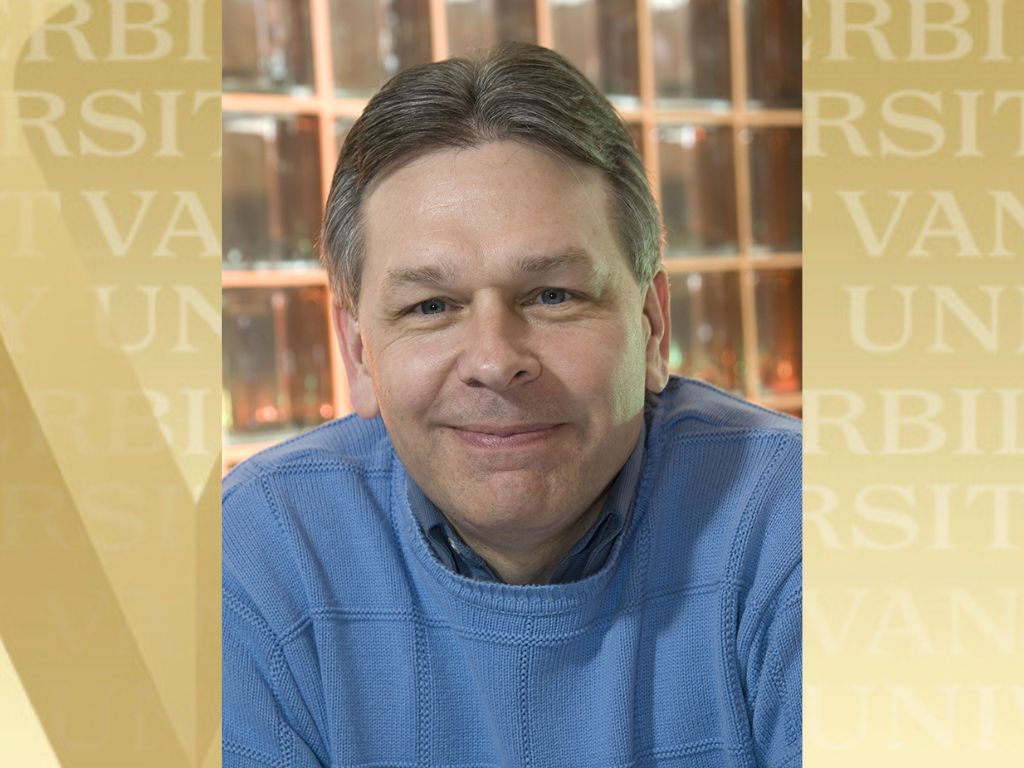
Scott Hiebert named Chief Scientific Officer of Cancer Prevention and Research Institute of Texas
Scott Hiebert, Hortense B. Ingram Chair in Cancer Research, has been named Chief Scientific Officer of the Cancer Prevention and Research Institute of Texas. Hiebert served as chair of the National Cancer Advisory Board and brought global recognition to the Vanderbilt-Ingram Cancer Center during his 28 years at Vanderbilt. Read MoreAug. 4, 2025
-
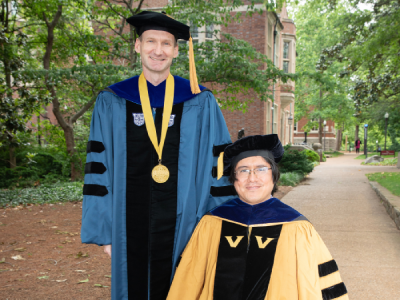
School of Medicine graduates celebrate Commencement
On average, each graduating student published four scientific papers based on their graduate work. Their research appeared in highly respected journals including Nature, Cell, Human Molecular Genetics and the Proceedings of the National Academy of Sciences, according to Abigail Brown, PhD, director of the Biomedical Research Education and Training Office of Outcomes Research. Read MoreMay. 16, 2024
-
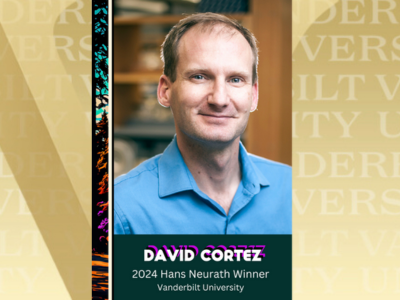
David Cortez wins Protein Society award for contributions to basic protein science
World-renowned leader in biochemistry David Cortez wins the 2024 Hans Neurath Award for the development and application of creative technological approaches to identify and characterize proteins involved in DNA and genome maintenance. Read MoreApr. 26, 2024
-
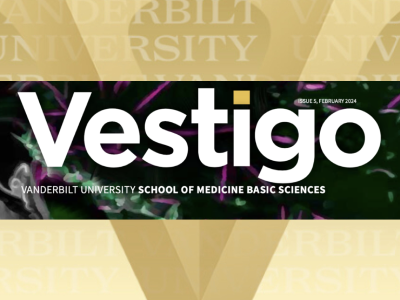
A Nobel-worthy discovery spawns a new field—and new therapies
Cohen was awarded the 1986 Nobel Prize in Physiology or Medicine for his discovery of epidermal growth factor, a protein produced in the body that influences the development of nerve and skin tissues by stimulating cell growth and differentiation. The discovery of EGF launched an entire field of research into growth factor signaling and had major impacts on human health. Read MoreMar. 7, 2024
-

What’s New in Science?
The latest scientific research from Basic Sciences faculty and trainees. Read MoreMar. 7, 2024
-
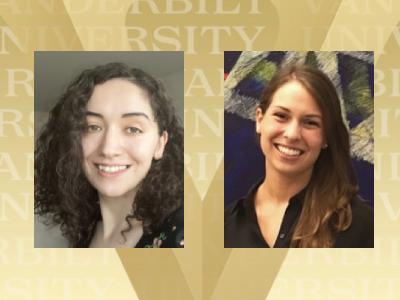
Destination Biochemistry welcomes Baris and Pollenz—and new applicants
Baris and Pollenz have been selected as the Danzo and Cohen Postdoctoral Scholars, respectively. Destination Biochemistry applications for the next cohort are due Thursday, Feb. 15. Read MoreFeb. 2, 2024
-
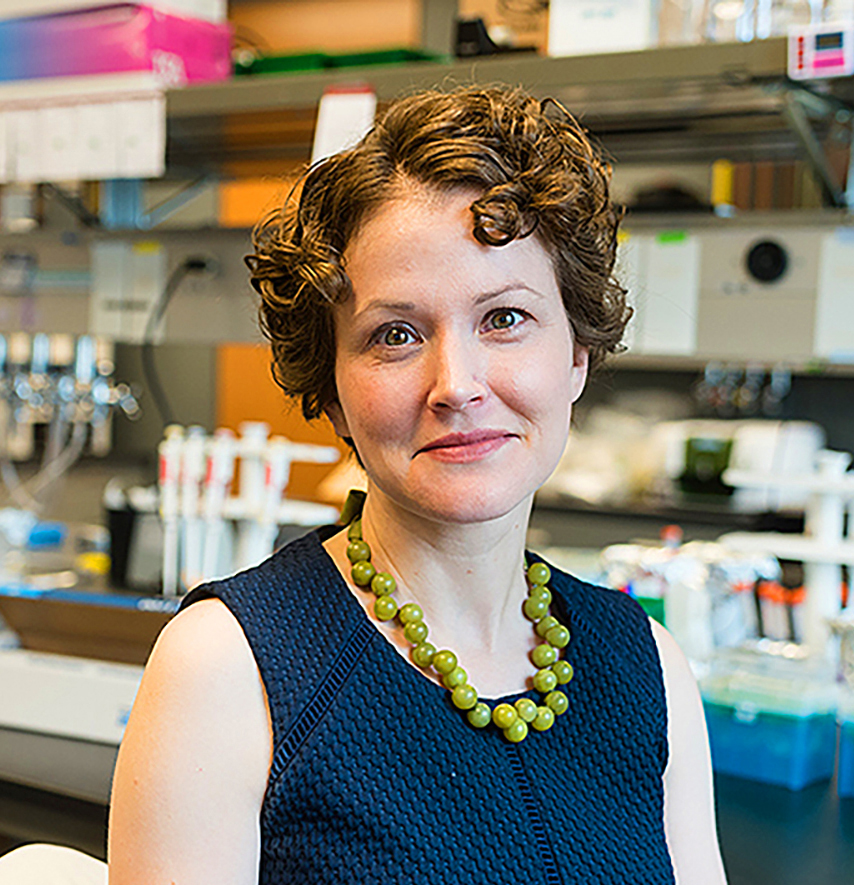
Membrane biophysics authority Jeanne Stachowiak to deliver Apex Lecture on Feb. 13
Stachowiak is recognized for a paradigm-shifting discovery in the field of membrane biophysics, demonstrating that proteins can induce membrane curvature solely through a surface-crowding mechanism. Her lab investigates the biophysical mechanisms that underlie the function of lipid membranes in cells and explores the opportunity of creating bio-inspired materials and systems that borrow these mechanisms. Read MoreFeb. 1, 2024